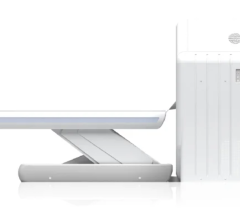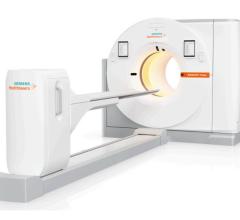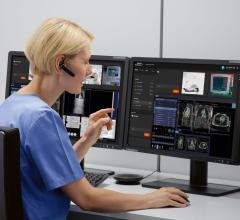
Nov. 25, 2024 — GE HealthCare has announced it is woking with Peter MacCallum Cancer Centre in Melbourne, Australia, to further develop and explore the clinical and research possibilities of its total body PET/CT technology[i] designed with a 128 cm, ultra-high sensitivity detector. Likewise, Peter MacCallum Cancer Center will leverage the total body PET/CT technology designed by GE HealthCare for its research efforts at the forefront of molecular imaging and cancer patient management.
Increased demand for whole-body PET/CT imaging and innovation is fueled by the increased prevalence of the diseases it can detect, namely cancer. Fortunately, as cancer rates increase, so does the availability of new immunotherapies and drugs – encouraging the practice of more personalized forms of medicine. One such growing practice is theranostics, which uses both imaging technology – including PET/CT – and targeted diagnostics and therapies to identify and treat disease as well as monitor patients’ response to treatment.
In this environment, GE HealthCare designed its total body PET/CT technology to support research and further advance the capabilities of traditional PET by helping promote the addition of new diagnostic and therapeutic agents, driving new clinical pathways, supporting existing molecular imaging and theranostics applications and promoting enhanced healthcare system efficiency.
“With global cancer cases expected to increase by 77 percent by 2050,[ii] we must invest in research and technology that enables us to gain greater perspective on and management of the disease,” shares Professor Michael Hofman, nuclear medicine physician and head of the PET/CT program at Melbourne's Peter MacCallum Cancer Centre. “That’s why we are excited to work with GE HealthCare’s new PET/CT technology, which is designed to help support our ongoing investigation and development of new radiotracers for cancer imaging and a better understanding of tumor biology. Our current PET/CT devices image the body in five-to-six steps which are then stitched together to create our scans. This next generation technology is being designed with the goal to image from head to thighs in a single step, which may create new opportunities for research. Combined with deep learning-based capabilities, this technology has the potential to be a major advancement for patients that will support prevention, early detection, and better scanning of advanced cancers.”
To support this advanced research, encourage new discoveries, and meet growing clinical demands, GE HealthCare designed its total body PET/CT technology for ultra-low dose scans; fast acquisitions; multi organ dynamic imaging; and imaging of slow decaying, low activity tracers. In parallel, the system aims to improve healthcare system efficiency by enhancing clinical workflows, supporting routine clinical practice, and improving operational efficiency.
“Innovation requires close collaboration, and we are thrilled to do that with Peter MacCallum Cancer Centre on our total body PET/CT technology,” shares Jean-Luc Procaccini, President and CEO, Molecular Imaging and Computed Tomography, GE HealthCare. “Already, the institution’s research has revolutionized cancer imaging and pioneered theranostics. Now, we aim to usher in a new era of scientific discovery and research together with a total body PET/CT technology for the future, unlocking its potential to help clinicians further improve patient outcomes.”
The new technology is designed as a scalable solution,[iii] helping enabling radiology departments and healthcare facilities to upgrade the hardware to the long axial field of view PET/CT and add service lines to help meet growing demand as well as optimize clinical capabilities, help provide access to the latest technology, and accommodate evolving community needs for many years to come. Additionally, this technology is being designed to offer a collection of intuitive workflow solutions enhanced by artificial intelligence (AI) to help encourage greater clinical and operational efficiency.
“We are excited to collaborate with GE HealthCare and kickoff this unprecedented opportunity for cancer research in Australia and around the world,” adds Prof. Hofman. “Together - and with the support of Australian Cancer Research Foundation (ACRF) and National Imaging Facility - we’re embarking on a new frontier of PET/CT imaging – one that’s full of exciting, new possibilities.”
For more information on GE HealthCare’s impressive Molecular Imaging portfolio, visit gehealthcare.com.
[i] Technology in development. Not for sale. Not cleared or approved by the U.S. FDA or any other global regulator for commercial availability.
[ii] “Global cancer burden growing, amidst mounting need for services.” World Health Organization. Published 1 February 2024. Accessed 9 September 2024. https://www.who.int/news/item/01-02-2024-global-cancer-burden-growing--amidst-mounting-need-for-services
[iii] Omni Legend’s Detector Assembly is designed to allow field upgrade scalability of the Axial Field of View up to 128 cm.


 October 30, 2025
October 30, 2025 









